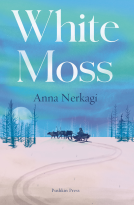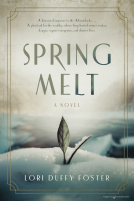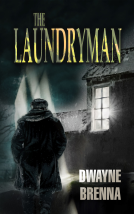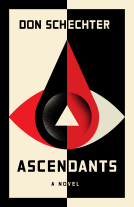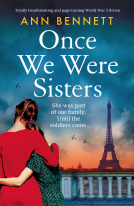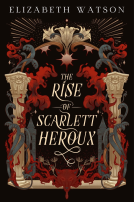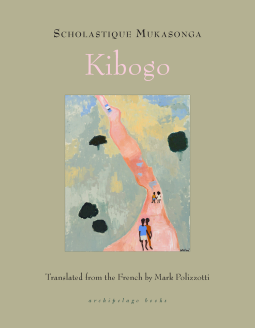
Kibogo
by Scholastique Mukasonga
This title was previously available on NetGalley and is now archived.
Send NetGalley books directly to your Kindle or Kindle app
1
To read on a Kindle or Kindle app, please add kindle@netgalley.com as an approved email address to receive files in your Amazon account. Click here for step-by-step instructions.
2
Also find your Kindle email address within your Amazon account, and enter it here.
Pub Date Sep 13 2022 | Archive Date Sep 21 2022
Talking about this book? Use #Kibogo #NetGalley. More hashtag tips!
Description
A new masterwork of satire, lore, and living memory from the leading voice of French-Rwandan literature
“Mukasonga breathes upon a vanished world and brings it to life in all its sparkling multifariousness” --J.M. Coetzee
In four beautifully woven parts, Mukasonga spins a marvelous recounting of the clash between ancient Rwandan beliefs and the missionaries determined to replace them with European Christianity.
When a rogue priest is defrocked for fusing the gospels with the martyrdom of Kibogo, a fierce clash of cults ensues. Swirling with the heady smell of wet earth and flashes of acerbic humor, Mukasonga brings to life the vital mythologies that imbue the Rwandan spirit. In doing so, she gives us a tale of disarming simplicity and profound universal truth.
Kibogo’s story is reserved for the evening’s end, when women sit around a fire drinking honeyed brew, when just a few are able to stave off sleep. With heads nodding, drifting into the mist of a dream, one faithful storyteller will weave the old legends of the hillside, stories which church missionaries have done everything in their power to expunge.
To some, Kibogo’s tale is founding myth, celestial marvel, magic incantation, bottomless source of hope. To white priests spritzing holy water on shriveled, drought-ridden trees, it looms like red fog over the village: forbidden, satanic, a witchdoctor’s hoax. All debate the twisted roots of this story, but deep down, all secretly wonder – can Kibogo really summon the rain?
Advance Praise
"A searing tale of contending gods, religions, and economies in colonial Rwanda . . . As Mukasonga’s story opens, a village subchief, bribed by a "Colonial" with “a watch, a pair of sunglasses, a bottle of port wine, two jerry cans of gasoline, [and] a swath of fabric for his wife and daughters,” rounds up the children to serve in the war effort against Germany by harvesting anti-malarial flowers. Other agents of change follow . . . Drought ensues, and with it the people starve, and with that they recall the old ways . . . Pensive and lyrical; a closely observed story of cultures in collision."
– Kirkus Reviews, Starred Review
"Complex and revelatory . . . Mukasonga complicates the blurry line between history and myth and critiques its relationship to colonialism. This speaks volumes to the power of storytelling."
--Publishers Weekly
"Kibogo is a rich novel about how real people and events are transformed into legends, and how those legends empower the marginalized."
--Eileen Gonzalez, Foreword Reviews
Available Editions
| EDITION | Other Format |
| ISBN | 9781953861368 |
| PRICE | $18.00 (USD) |
| PAGES | 152 |
Average rating from 26 members
Featured Reviews
An excellent novella set in a remote hillside village in Rwanda and dealing with the clash between ancient beliefs/myths and the Catholic faith as promoted/imposed by Belgian missionaries. It starts in 1943 when a famine, the Ruzagayura, rages as a result of drought, bad agricultural decisions and reduced manpower. The desperate villagers secretly defy the 'padri's' instructions and revert to worshipping their old gods, in particular Kibogo, in the hope he will bring rain. When the rains finally arrive was it Holy Mary or Kibogo who sent them?
I had wanted to read something by Rwandan author Scholastique Mukasonga for a while (her most famous novel is Lady of the Nile and she regularly appears on lists with possible next Nobel prize winners) and this was a great place to start. Very engaging, easy to read, it never gets boring, the writing is excellent and clever, there is witty humour. And the last chapter is brilliant. I also found it very interesting to - for once - read about the colonial period from an African perspective, especially how they deal with precolonial religious beliefs.
Many thanks to the excellent archipelago books for an arc.
Kibogo is an absolutely gorgeous novella. Set in 4 parts it deals with the clash between Rwandan traditional beliefs and the Catholic beliefs that missionaries are intent on spreading. Each part reveals a little more about the beliefs and stories Rwandan people held dear to them, such as the martyrdom of Kibogo (my personal favourite). All in all, this was a very interesting book to read.
4.5 Stars
One Liner: Powerful and impactful
Kibogo is a recounting of the constant clash between pagan beliefs and missionaries determined to evangelize Rwanda. It is divided into four parts and deals with Kibogo’s story, its distortion over the years, and the lives of people forever stuck between two opposite faiths.
The book was first published in French and is now translated into English. The story comes from an unseen narrator who talks to the readers in between. The writing is to the point and does what it should.
Reading this wasn’t easy. I couldn’t stop comparing the situations in Rwanda and India. In fact, the man-made Bengal Famine in India occurred at the same time there was a natural famine in Rwanda. The difference is that India was ruled by the Britishers and its Belgian missionaries in Rwanda.
There are too many parallels to draw, and TBH, I have no idea where to start. I’ll do my best to list them below.
The disdain for pagan culture is the prominent theme. Calling pagans as devil worshippers, witches, barbarians, uncultured, et al., and the neverending determination to convert them.
Using fear and punishment as tools for conversion. Yezu and Maria sure wouldn’t punish people for following their cultural beliefs! But the missionaries won’t tell you that.
Xavier’s over-enthusiasm to break and destroy Pagan idols. Ironic that they want to install Maria’s statue when idol-worshipping is bad. Should I mention that this is still rampant in India and Bangladesh even today? Sadly, the murtis are attacked by radicals from both Abhramic faiths.
The distortion of native tales by people from the same tribe. This happens because the older generations want to keep their heritage alive while the next generation wants nothing to do with it. Still, the cultural aspects are shared as stories and end up as a mess.
The inferiority complex that haunts multiple generations and their determination to gain approval from the superior White men.
People like the Professors who want to ‘revive’ pagan cultures as long as it suits their requirements. Wanting to ‘expose’ the missionaries by converting pagan centers into tourist locations. The yearning of natives to make their lives better and the trust they have in White men to help them achieve it. Breaks your heart.
Akayezu is such an intriguing character. I loved his arc, the questions he had, his struggles, his dreams, the unconventional methods, etc.
Mukamwezi is an enthralling character. Her power, presence, and timelessness represent how the pagan culture is rooted in the land and will stay alive no matter what. There will always be someone who refuses to let go of their cultural heritage, and they give the rest of us hope. The book ends with this hope, and that’s what gives me peace.
To summarize, Kibogo is a book you should read to see things from the African side. The book might make some uncomfortable and trigger generational trauma in others, but it is relatively safe to read.
Thank you, NetGalley and Archipelago Books, for the eARC. This review is voluntary and contains my honest opinion about the book.
Kibogo was a delightful and interesting read. The text in this translation flowed beautifully and was easy reading, yet it was packed with intriguing themes and a wonderful dose of satiric humour. The four stories interlinked seamlessly, and it was fascinating to see the clash between traditional belief and culture and colonial Christianity, and how the two sides attempted to marry the two, whether through outright replacement or via a blending of beliefs. It was certainly a thoughtful work and I would definitely pick up more books by this author in the future. It gets four stars from me.
Thanks to NetGalley and the publisher for the eARC of this wonderful little novella. Kibogo is an enchanting tale (actually several interwoven tales) of the intersection and conflict between Christianity and ancient religion in Rwanda. Obviously I never read the original French version, but the gorgeous, evocative language in this translation has clearly been chosen with care and suits the story very well. A fast, rewarding read.
 Educator 1004199
Educator 1004199
Kibogo reads like a gateway to a historical, colonial/postcolonial dreamscape. It reads like a fantastic reimagining of Chinua Achebe’s Things Fall Apart, but on a mythical, quasi-spiritual platform in Rwanda. It is inspiring as a work of decolonization, heart-wrenching as a historical fiction, a lyrical maze as a work of literature.
Like Things Fall Apart, Mukasonga’s Kibogo hinges on the binary opposition between the colonizer and the colonized, the imposition of Christianity on native peoples, and the annihilation of indigenous beliefs. But while similar to this famous predecessor, it is also unique in its own right. Kibogo is a nuanced novel. The Colonizer is not necessarily European and this point is pronounced. Sometimes — perhaps more than we would have wanted — the colonizer is our native neighbor, one of our own. Fanon was an astute observer of colonial culture; too often the enemy is a more intimate partner, the one who resides within. Mukasonga also draws a perforated line between Christian and Indigenous Belief; the characters and their stories reveal a more accurate historical account of colonization by highlighting how a syncretization of beliefs and practices is likely to have taken place.
This syncretization of cultures, beliefs, practices, and ideas is the heart of Kibogo. The novel is about the gradual development of a colonial culture, not through outright conquest, but through insidious means. Magic is a key component, a driving force that propels the stories to their ends. Ritual is the means by which the magic is released, and this is not only native Rwandan magic, but also European Christian magic, the kind imbued in holy water and Christian prayer. This lends Kibogo a mystical quality. The novel unfolds as would a myth; it is a fable about the meeting of Christian and Animist in Rwandan history. The characters are heroes, heroines, archetypes, and the plot moves forward through human and divine interventions. Each of Kibogo‘s four parts focuses on a particular character, as each of their stories builds upon the last to produce at the end a full view of Rwanda’s religious, spiritual, and colonial landscape.
This is not to say the characters are hollow; no, on the contrary, they are recognizable across colonial histories. For that reason Kibogo is larger than its central focus on colonization in Rwanda. This is a story that is recognizable in other African, Asian, Caribbean, South American, Australian, Pacific Island, and colonial contexts. Kibogo is centered and set in Rwanda, but it is a work of post-colonial literature for the rest of the “formerly” colonized world as well.
In short, a very thought-provoking work wrapped in beautiful, literary prose that unwinds like a yarn told late at night to children gathered around their grandmother’s hearth.
 Kasa C, Reviewer
Kasa C, Reviewer
Kibogo is another fine release under the archipelago imprint, which would never have found an audience in the English reading public otherwise. Translated from French, it presents four stories highlighting the colonial disruption of Rwanda, most particularly as regards the attempts by the church in trying to undermine native religions. Highly recommend.
 Reviewer 876149
Reviewer 876149
In Kibogo Scholastique Mukasonga pays tribute to the storytelling of her mother Stefania, who passed on lore and legend from her own past in Rwanda to her daughter. Set in 1940s and 1950s Rwanda, Mukasonga’s novel’s composed of a series of interlinking stories centred on an unnamed, rural, hillside community. Each episode recounts elements of the battle between Christian colonisers and locals striving to hold onto their traditional belief systems, together they form a fascinating commentary on the connections between the imposition of Western religious practices and imperialism. And, despite a definite fable-like quality, Mukasonga’s book’s firmly rooted in Rwanda’s history. There are numerous references to actual colonialist policies as well as the propaganda spread by figures of colonial authority like Pierre Ryckmans.
Mukasonga’s narrative opens in 1943 during the Ruzagayura Famine in which countless Rwandans died. The Belgian, colonial, administration siphoned off food that could have alleviated suffering in Rwanda, diverting it instead to Belgian wartime forces and those of the British in Uganda and Tanganyika, a project that fuelled protests across Rwanda. Mukasonga’s reflection on the impact on one small community slowly turns into a critique of the uses of religious institutions to shore up colonialism and “naturalise” material exploitation. The villagers are torn about how to end the drought, many recalling the ancient legend of Kibogo, a princely figure who ascended to the heavens to bring rain during a similar period in Rwanda’s past. The colonial administration spreads a rumour that a man called Hitler is to blame. But the “White Fathers “or “padri”, the white, Christian priests, make it clear that it’s the fault of individual Rwandans, whose stubborn clinging to “pagan” forms of worship has stirred up their God’s wrath. Desperate for rain, the beleaguered villagers debate their likeliest route to salvation. Is it via Kibogo and his earthly bride, village outcast Mukamwezi or the Christian God and the Virgin Mary?
The next sections take place several years later when a local boy, who was dispatched to a seminary to train as a priest, unexpectedly comes home. Horrifyng his white mentors, Akayesu's (little-Jesus) solution to the ongoing conflict between his ancestral religion and Christianity is to merge the two. Akayesu’s actions lead him to Mukamwezi. Branded a witch by the local Christian priests she’s now living on the outskirts of the village. Akayesu and Mukamwezi' relationship is set to become part of the rich mythology surrounding Kibogo, in a bizarre fusing of Rwandan and Christian notions of sacrifice, resurrection and miracles – echoing the ways in which the colonised managed to retain vestiges of their own cultural systems while outwardly submitting to their colonisers’ religion.
In her final chapter, Mukasonga weaves a wonderfully satirical tale around the arrival of a pompous, European professor who, rather ironically, is set on collecting imigani, the Rwandan folk tales his fellow Europeans have worked so hard to eradicate. But he too, has his own agenda, greedy for anything that confirms his suspicions about hidden sites of human sacrifice and sinister pagan rites. Mukasonga’s novel’s a compelling take on the cultural violence that went hand-in-hand with the literal violence of the "Bazungu’s" (white) colonialist methods, and the central role of various incarnations of the Christian church in enforcing and maintaining colonial rule. But it’s also an act of redemption, a means of rescuing the rich, oral histories Rwanda’s colonists tried so hard to destroy. Translated by Mark Polizotti.
 Fran E, Reviewer
Fran E, Reviewer
"Rather than a writer, I prefer to call myself a storyteller."
-Scholastique Mukasonga
The spirit of Rwanda is encapsulated within the content of "Kibogo", a social novel. Written in four beautifully woven parts, the novel relates how oral literature and tradition were being suppressed by colonial and missionary rule.
The colonizers needed iron and copper from the mines to make rifles and cannons for war. "And the chiefs had said to the sub-chiefs: I need men and I need beans...and the sub-chiefs took the men and beans, and took away our children." When the barns were depleted, then came "Ruzagayura", the famine, taking its toll on the most vulnerable. They were told that trucks filled with flour, rice and beans were forthcoming. Instead of trucks, missionaries came.
Where was the rain needed to nourish the soil so new plantings might flourish?
The missionaries claimed that the singing of hymns by those baptized and the renunciation of witchdoctors and spell-casting demons would bring on the rain. Pagan belief and myth invoked the spirit of Kibogo, a self-sacrificing prince and his faithful priestess, Mukamwezi. Who would bring the rain, Yezu and Maria or Kibogo?
Giving hope to the villagers, but exasperating the European missionaries, was Akayezu, a homegrown seminary student. With one foot planted in each culture, that of a religious nature as well as an infused traditional upbringing, his attempts to placate both sides led to his defrocked status.
"Kibogo's story is reserved for the evening's end, when women circle a fire drinking honeyed brew...". To these women, Kibogo's legend represented the ancient beliefs of yesteryear. These traditions needed to be preserved. What laughable foolishness was displayed by a visiting professor; a false narrative and false promises.
"Kibogo" by Scholastique Mukasonga and translated by Mark Polizzotti is a powerful, heartfelt novel. It is hoped that the guardians of Rawanda's rich oral literature can keep their heritage alive for generations to come. Highly recommended.
Thank you Archipelago Books and Net Galley for the ARC in exchange for an honest review.
 Ilse A, Reviewer
Ilse A, Reviewer
Even peoples without writing love their libraries.
Having been wanting to read France-based Rwandan author Scholastique Mukasonga since Katia’s fascinating review on Our Lady of the Nile put her firmly on my radar about five years ago, I was thrilled getting the chance to read Kibogo, the English translation of Kibogo est monté au ciel as a first acquaintance with Mukasonga’s work, as none of her books are available in the local library.
Kibogo surpassed my (high) hopes and expectations. How to portend that Mukasonga would weave a fairy tale-esque, humorous, satiric folktale out of elements as drought, famine, (German and Belgian) colonisation and the supplanting of Rwandan mythology and cults by forced evangelisation?
Told in four interlocking fragments, Mukasonga’s tale is not only well-composed and written in a gorgeous, gossamer prose larded with Rwandan history and culture, but it is also an astute commentary on colonialism and exploitation. She lampoons Western Christian proselytism, superiority thinking and preposterous appropriation of African historiography. Notwithstanding the import and weight of these topics, this book surprises with its light tone, and so probably shows a quite different side of Mukasonga’s craft than her account on the Rwandan genocide (Cockroaches). The joy of writing this clearly splashes from Mukasonga’s imaginative storytelling. She breathes life into the priestess/sorceress Mukamwezi and the befuddled seminarian Akayezu with panache. Depicting the old men of the village rivalling to tell the tallest stories to give a French professor coming around to jot down their legends - hoping to find traces of cannibalism that fit into his theories - value for his money, she shows her keen eye for colourful detail.
I was quite amused by the way Mukasonga toys with religious paradigms, drawing parallels between the pagan beliefs and some core points of belief in Christianity, applying her irreverent brush to the twists and connections between them (the worshipping of the statue of Maria, a circle of women as apostles, the self-sacrifice, Ascension and Assumption of Jesus/Mary and Kibogo/Akayezu/Mukawezi). With barbed understatement and irony Mukasonga shows how the padri, the white missionaries, don’t really practise what they preach on the Christian values but rather use their doctrines to scare off and intimidate their newly converted flock into obedience.
A wondrous tribute to the art of storytelling, I couldn’t have dreamt of a more marvellous introduction to a new-to-me writer.
(****1/2)
Ever since I read The First Wife: A Tale of Poligamy, by Paulina Chiziane, I've been dying to read more of Archipelago Books' catalogue so I was thrilled to be approved to read this one.
It was a bit, not to say a lot out of my comfort zone, as I usually tend to dislike books so heavily laden with religious and/or historical thematics but this one was an exception and a delight to read. Stunning writing and a wonderful portrayal of themes such as religion, tradition, superstition, colonialism and its negative effects upon the native inhabitants of a land and their heritage. Memory and communication also play an important role in this book.
I loved this chance to get to know more or Rwanda and its history, culture and traditions, definitely want to read more from this author and from this publisher in the future.
 Reviewer 553494
Reviewer 553494
This was my first experience reading from this author and I'm inclined to read more from them. I loved the use of language here, it was very lush.
There’s much to enjoy and think about in this book about Rwandan folktales, legends and stories, and how they change over time with the effects of colonisation and the religion of the missionaries. Beautifully written with much humour, it shows the importance of storytelling.
I read this book alongside Mukasonga's other English release this year, her memoirs The Barefoot Woman, and the two sat comfortably side by side, and give an insight into her truly fascinating life.
In the slim and focused Kibogo, we hear a local legend that discusses religion and power, and how local beliefs about rulers, nature and faith matter so much to the people who follow them.
I think what I enjoy most about her writing is her ability to focus on stories that feel so mythical and fable-like, almost as if you have been summoned to gather around her feet and listen, but then quickly find yourself engaging with deep-rooted political issues that still blight modern-day Rwanda.
This book is beautiful, angry and fascinating.
I received an advance copy of this book from NetGalley in exchange for an honest review.
 Rin N, Reviewer
Rin N, Reviewer
Kibogo was a really beautiful novella, I hope to read more from this author!
Thank you Netgalley for granting me access to an ARC in exchange for an honest review!
An incredible leading voice for French-Rwandan literature. This story weaves four stories together in a fairy tale-esque, humorous, satiric folktale. It will transport you!
Kibogo was a beautiful story about a legend, the mix between faith and power, and politics in Rwanda. Great writing.
 Reviewer 823951
Reviewer 823951
Wow loved this book! In four beautifully woven parts, Mukasonga spins a marvelous recounting of the clash between ancient Rwandan beliefs and the missionaries determined to replace them with European Christianity.
 Jen N, Reviewer
Jen N, Reviewer
Centred around overlapping ascension stories in Catholicism and Rwandan folk tales, set against several generations of evolving colonial rule, Kibogo is a satire that mimics the oral storytelling tradition. Reading along, you can imagine two elders simultaneously telling the story and competing with each other.
Some bits feel heavy-handed (the story of the visiting professor hoping to hear human sacrifice stories, for one), the book still manages to feel both very specific to Rwanda under Belgian rule and to colonial attitudes towards local beliefs worldwide. So while I didn't find it as singularly powerful as some of Mukasonga's other work, I think the universal elements will make it more accessible for a wider audience.
Some of the story breaks were oddly broken up on the page, but as I read an eARC from Archipelago, I assume this will be corrected for publication.
 Leah G, Reviewer
Leah G, Reviewer
Spirits in the sky… 5 stars
It is the time of WW2 and Rwanda is under Belgian colonial control. The young men have been sent to mine metals for weapons; children are forced to pick the flowers that will make medicines for the soldiers in Europe. In the village where the story is set, the villagers have been forced to change their crops from ones they grew to feed themselves to cash crops, such as coffee. Their masters have taken their cattle by force or, if they are lucky, have bought them for a pittance. So when drought comes, the famine is extreme. The Christian padri, tools of colonial power, tell them the drought is a punishment because they still hold to their pagan beliefs. Pray to Yezu and Maria, they say. Doesn’t work. Five old men from the village decide to seek the intervention of Kibogo, who once long ago was snatched up to heaven from the top of the mountain and sent back rain. They visit a hermit woman, Mukamwezi, who is the virgin bride who awaits Kibogo’s promised return, in her hut high on the mountain.
“And I, Mukamwezi, tell you this: it's from Runani that we must call to the rain, and you elders know why. Do you think I'm unaware what you'll be doing that day? It's the day when the padri plans to go parading his statue throughout the hillside and all the people of the hillside will follow him and will lose the last of their strength. As for me, I tell you, come with me, all five of you, and only you five, I don't want any others, and we'll see who, between Kibogo and Maria, commands the rain; but make sure all of you are there, woe unto all of you if one of you is missing at sunrise, and we’ll climb to the top of the mountain and Kibogo will tell me to summon the clouds, the thunder, the rain, and we shall call the clouds and thunder, and the rain will fall on our hillside and on all of Rwanda.”
Mukamwezi leads them in a pagan rite, but Kibogo doesn’t bring rain. Eventually rain comes. The padri give the credit to Maria. But in the evenings the elders of the village still tell the tales of Kibogo…
This novella may be short but is packed full of ideas. It is written in the third person, but entirely from the perspective of the villagers, and in a kind of language that sounds like a transcription of oral story-telling. There are many Rwandan words sprinkled throughout, mostly readily understandable from the context, and they serve as a constant reminder of the perspective. Not outwardly polemical, it has much to say about colonialism in the mid-20th century, and of how the Church operated on behalf of the colonisers as a tool of social control and subjugation. It is not, however, grim or bleak. There is a lot of open humour, and also a thread of resilience as, despite the constant preaching, Kibogo refuses to be driven from the land. The colonisers may have taken the crops, the cattle, the labour of the villagers, but try as they might they cannot take away the legends that are repeated by the old late at night when the day’s work is done.
The story is told in four parts and covers a period, I’d guess, of around forty or fifty years though no dates are given. There are long gaps of years between each part, and by the end two generations of villagers have grown old since the war-time famine. In that time, the padri have done everything they can to replace the villagers’ mythos with Christianity, for surely their written Bible is a greater authority than any oral story passed down unreliably from the memories of the old could be. They have chopped down sacred trees and in their place planted statues of Maria. They have taken the brightest of the boys and trained them as clerks or even padri to continue the work they have started.
But still in the evenings the old stories are told, ever evolving, ever changing, slowly blending in aspects of the new religion.
And now the old colonialism is dying, and the new white men come, this time not to preach but, they say, to learn – to record the old legends before they are forgotten, to write them in a book, as Yezu’s story was once written in a book. But the villagers have learned that the white men have certain expectations of “pagan” legends – cannibalism is always good, human sacrifice even better. And the white men offer money – a pittance, to be sure, but still. And so the old men tell them the stories they want to hear…
It took me a little while to get attuned to the style and the sprinkling of unfamiliar words, but once I had I felt the language sang from the page. (Oddly, it reminded me of the style Rider Haggard used in Nada the Lily, which made me realise what a wonderful job he had done of capturing that oral style, as Mukasonga does here.) The translation is generally excellent, managing to keep the feeling of “foreignness” which sometimes gets lost along the way, although there are occasional Americanisms which jarred my British ear – gotten, oldsters, etc.
Colonial-style Christianity doesn’t come out of it well. The white men are cruel, and the Church legitimises their cruelty. There are deliberate parallels between the story of Yezu and the legend of Kibogo – the ascension to heaven, the promised return – so that the gradual blending of the two in the stories of the villagers has logic. Subtly, Mukasonga seems to be comparing the hard power of the written word – fixed, immutable – with the softer power of oral story-telling – evolving, incorporating new ideas and changing values, and perhaps with a greater ability therefore to stay relevant. I loved how she showed the outward obedience to the new forced religion failing to silence the old stories, and the old sacred places retaining their power however desecrated they may have been. It seemed to me, though I may be extrapolating too much, that the white men and their colonial power were being mocked – you came, you saw, you conquered, but now you’re gone, and look! We’re still here – fundamentally unchanged.
“'In our tales, Kibogo too can shake the sky and set off the thunder: isn't the tale of Kibogo equal to the tale of Yezu?'
And in the deepest secret of night, the storytellers spin and spin again the tale of Kibogo. "
A fascinating book – an enjoyable story in itself, which also has much to say about the power and resilience of story as a means of creating and maintaining a kind of cultural strength. I look forward to reading more from Mukasonga.
 Amanda W, Reviewer
Amanda W, Reviewer
Kibogo tells of the conflict between native Rwandan religious beliefs and the Christian religion brought by European colonizers. This short book is divided into four parts, with each part revealing a little more of the legend of Kibogo, and how his worship is suppressed by the missionaries who twist their own religion to further their agenda. A very well-told and thought-provoking tale.
Received via NetGalley.



